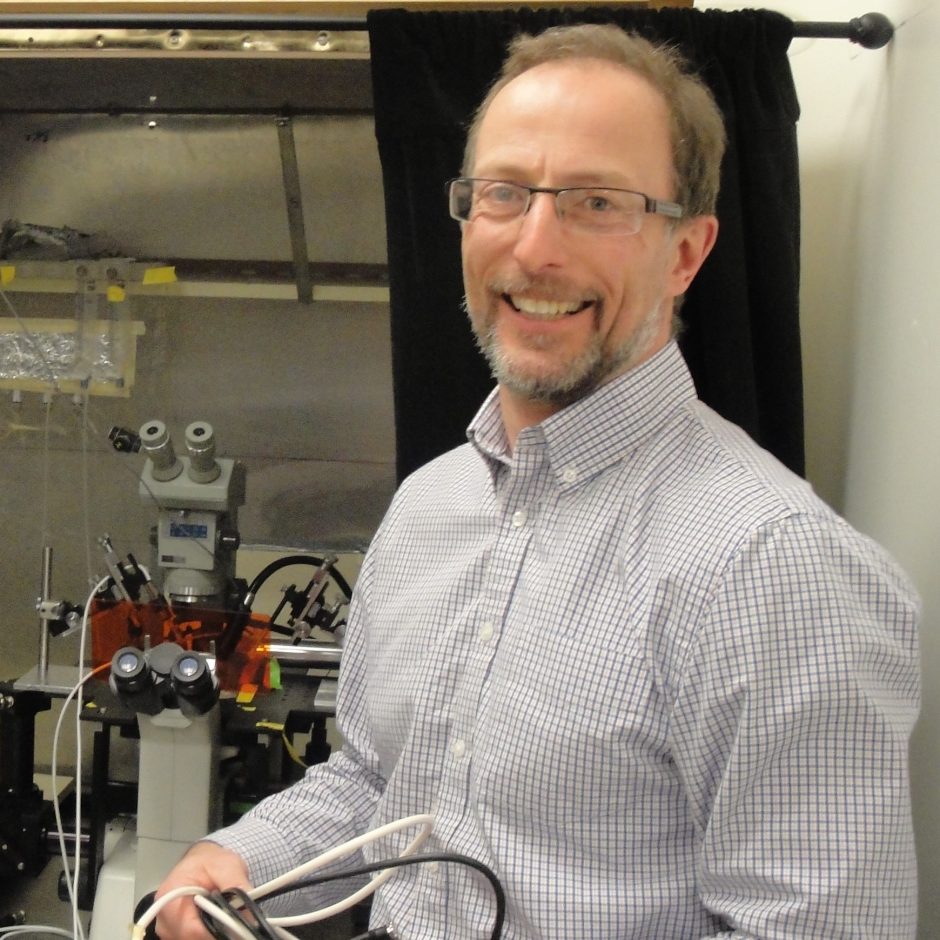
Research Interests
Cardiovascular, Ion channel regulation, Potassium Channel
Research Focus Teams
Cardiovascular
Departments
Anesthesia, Pharmacology & Therapeutics
Contact
Email: david.fedida@ubc.ca
Office Phone: 604–822–5806
Publications
Lab Website
David Fedida obtained his B.Sc. and Ph.D. degrees at the University of Leeds in England in cardiac electrophysiology and his medical Degree (BM, B.Ch.) from Oxford University. After a brief period spent in residency training in General Surgery and Cardiovascular Medicine in the UK, he spent postdoctoral periods at Oxford with Denis Noble, Wayne Giles in Calgary, and Arthur Brown at Baylor College of Medicine in Texas where he first identified Kv1.5 as the molecular basis of the delayed rectifier, IKur, in human atrium.
Presently he is a Professor in the Department of Anesthesiology, Pharmacology & Therapeutics with funding from the Heart and Stroke Foundation of BC and Yukon and The Canadian Institutes for Health Research. This funding is to study molecular mechanisms for the gating of voltage-activated potassium channels, trafficking of potassium channels in the heart and for the discovery of small molecule inhibitors of viral ion channels, viroporins, for treatment of viral infections.
David Fedida is also a consultant for Cardiome Pharma Corp in Vancouver where he has been involved in the design and electrophysiological testing of Cardiome’s agents for the treatment of supraventricular arrhythmias – notably Vernakalant, which has been shown to be successful in the conversion of recent onset atrial fibrillation (AF) in Phase II and III trials and has European approval for the IV treatment of AF.
BSc Hon Class I (Physiology), Leeds University, UK
PhD (Cardiac Electrophysiology), Leeds University, UK
BMBCh (Clinical Medicine), Oxford University, UK
The Fedida laboratory is interested in problems of cardiac repolarization and rhythm that mainly involve the study of ion channels that regulate normal electrical activity and contractility in the heart. We also study ion channels in viruses that are important for their infectivity. Ion channels are small proteins that regulate the flow of charged cations and anions across cell membranes, and they are found in all cells throughout the body, and in all species in the Animal Kingdom. Come and have a look at some of the projects we are pursuing that involve the biophysics of potassium ion channels, how they are synthesized and transported to and from the cell surface, and how they open and close. We also investigate late sodium currents and heart failure, and viral ion channels from influenza A.
- Gating Currents
- Single Channel Recordings
- Voltage Clamp Fluorimetry
- Late Sodium Currents
- Viroporins
- Long QT Syndrome
- Ion Channel Trafficking